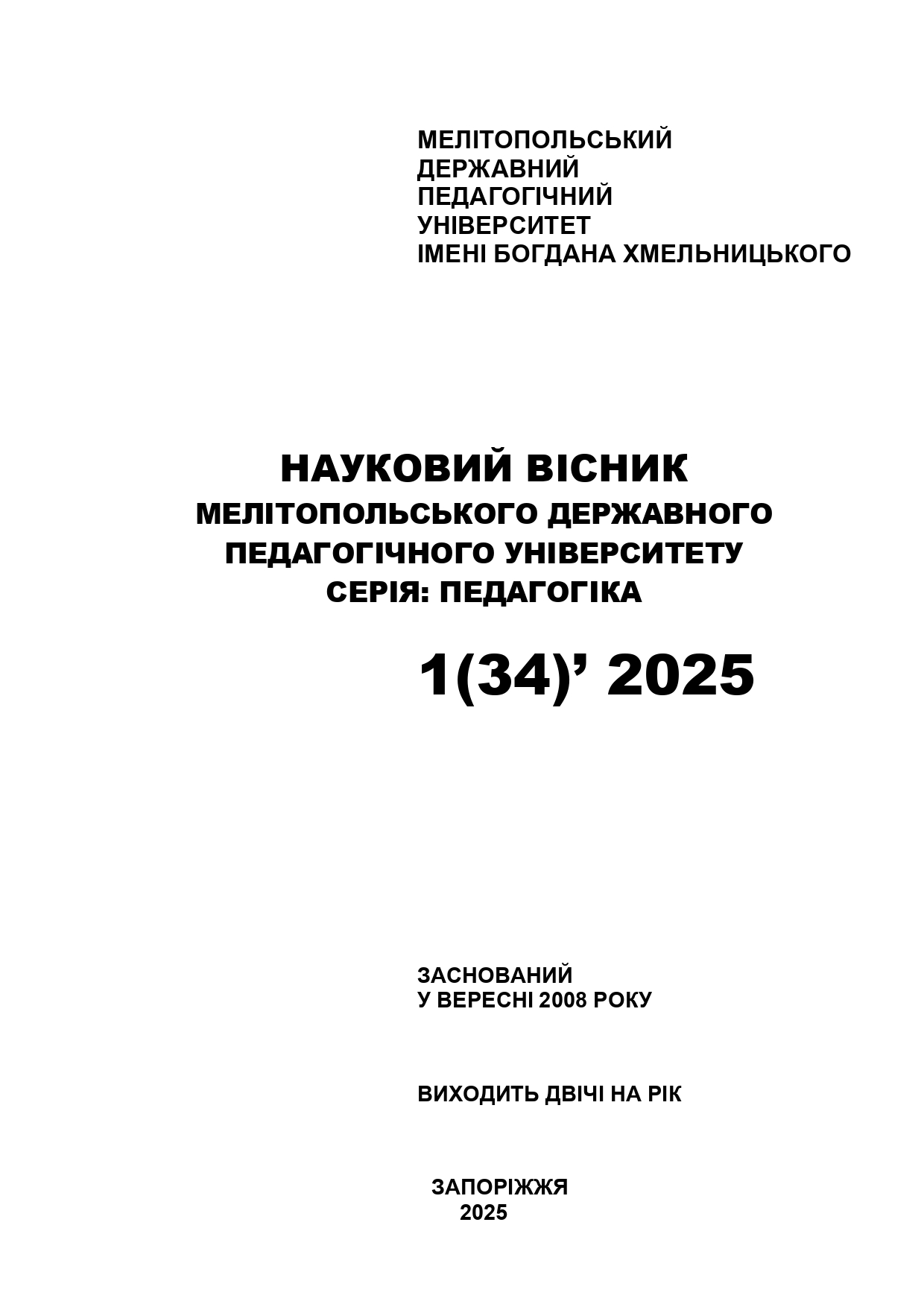Modeling of the process of using information and communication technologies during blended learning in the professional training of specialists in the field of information technologies
Abstract
The purpose of the study is to model the process of using ICT in
blended learning by designing an interactive model that integrates
digital tools and innovative methods to ensure adaptability, flexibility
of the educational process and the formation of professional
competencies of IT specialists in accordance with the modern
requirements of the labor market. The research methodology is
based on a systematic approach to modeling, which includes the
following stages: analysis of learning needs and goals, development
of the model structure, stages of its implementation (preparation,
implementation, evaluation). The novelty of the methodology
consists
in
the
integration
of
pedagogical approaches
(constructivism, project-oriented learning, flipped classroom,
adaptive learning) with digital tools (LMS, cloud services,
simulations, development environments) and the development of a
clear sequence of their introduction into the educational process.
Special attention is paid to ensuring personalization, flexibility and
prompt feedback. The results include the development of a model
of ICT use with objective, technological, pedagogical, organizational
and assessment components for blended learning. The key
competencies of IT specialists and the means of their formation
through platforms (Moodle, Canvas), collaboration tools (Google
Workspace, Microsoft Teams), simulations (Labster, Cisco Packet
Tracer) and development environments (Visual Studio Code,
PyCharm) are defined. Such methods as the flipped classroom,
gamification, project-based and adaptive learning are implemented,
and tools to monitor student progress using an LMS for automated
assessment and individualized feedback are created. The
conclusions confirm that the modeling of the process of using ICT
tools in blended learning allows the integration of modern
pedagogical and technological solutions for the formation of
technical, analytical and communication skills of students. The
model contributes to the effective preparation of students to work in
the conditions of the digital economy, ensuring their
competitiveness in the labor market. Prospects for further research
include the development of adaptive platforms, the study of the
effectiveness of virtual laboratories and simulations, the integration
of ICT in dual education, the analysis of the impact of blended
learning on the formation of soft skills. This will allow to improve the
proposed model and expand the possibilities of its practical
application.




